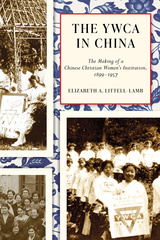
Saving the Nation through Culture
The Folklore Movement in Republican China
The Modern Chinese Folklore Movement burst onto the scene at National Peking University between 1918 and 1926. A group of literary scholars, inspired by Western thought, turned to the study and revitalization of folklore – popular songs, beliefs, and customs – to rally the people around the flag during an era of deep postwar disillusionment.
Saving the Nation through Culture opens a new chapter in the world history of the Folklore Movement by exploring the origins and evolution of the discipline’s Chinese branch. Gao reveals that intellectuals in the New Culture Movement influenced the founding folklorists with their aim to repudiate Confucianism following the Chinese Republic’s failure to modernize the nation. The folklorists, however, faced a unique challenge – advocating for modern academic methods and constructions while upholding folklore as the key to the nation’s salvation.
Largely unknown in the West and underappreciated in China, the Modern Folklore Movement failed to achieve its goal of reinvigorating the Chinese nation. But it helped establish a modern discipline, promoting a spirit of academic independence that continues to influence Chinese intellectuals today.
Saving the Nation through Culture is for anyone interested in the cultural and intellectual history of modern China and the international history of folklore studies.
Every scholar of twentieth-century China will need to read this book. Gao has read and analyzed every shred of material that exists on the Folklore Movement and has created a fresh understanding of how it emerged and its long-term influence.
Jie Gao is an assistant professor of history at Murray State University in Kentucky. Her work has appeared in several journals and books in Canada, China, South Korea, the United Kingdom, and the United States.
Introduction
1 Seeking a Solution for the Nation: The Folklore Movement’s Origins at National Peking University
2 Carrying on amidst Chaos: Establishment of Folklore Studies in South China
3 Developing an Excellent Situation: The Spread of the Folklore Movement in China
4 Breaking with the Past: The Folklore Movement in Wartime
Conclusion
Appendices; Notes; Glossary; Bibliography; Index










